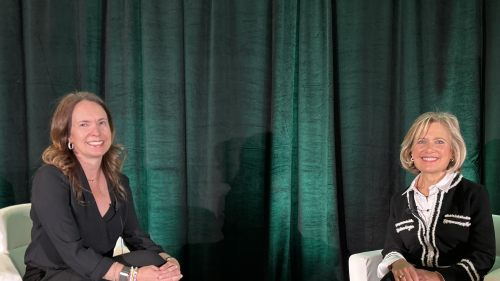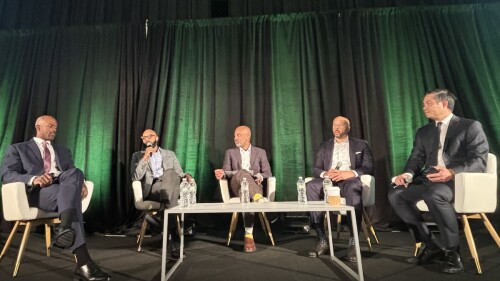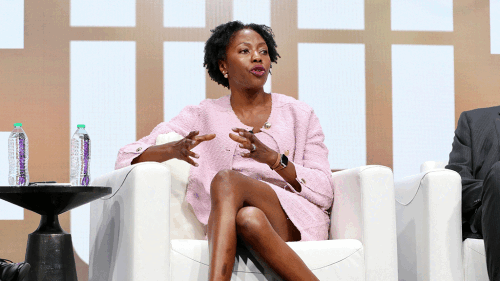ULI Trustee Roy March and his family have a particular interest in helping communities rebuild after disasters. In some cases, such as the HIV epidemic in Africa, these disasters are not one-time events, but take place over generations. Since 2006, the family’s March to the Top Foundation has been making grants to schools, hospitals, and orphanages in Nairobi, Kenya, as they contend with the disease’s devastating impact on children, families, and communities.
In recent years, March, chief executive officer of Eastdil Secured, a real estate banking company based in Los Angeles, has wanted to make a gift to the ULI Foundation in a way that reflects his family’s philanthropic priorities. ULI programs may seem like a far cry from HIV-related health and education projects in Africa, but March sees them all on a continuum of organizations that make the world a better place and improve the human condition.
Last year, through the March Family Foundation, March pledged $2 million to support ULI Advisory Services panels that are specifically focused on communities in recovery. Composed entirely of ULI members who volunteer their time and professional expertise, these panels have assisted communities facing a wide range of circumstances—from Cedar Rapids, Iowa, after major floods in 2008 and Oklahoma City after the 1995 bombing of the Murrah Federal Building to lower Manhattan after the attacks of 9/11.
“ULI is unique in being able to bring the expertise and talent together,” stepping in “when these communities need it the most,” March says.
How Advisory Services Panels Help
Since 1947, more than 600 panels have been convened to serve large and small communities in urban, suburban, and rural areas in the United States and around the world.
Sponsor cities that ask ULI for assistance are typically asked to cover some of the panel’s travel and staff costs. But the ULI Foundation has covered 100 percent of the costs for special panels that focused on disaster relief. The panelists themselves—ULI members with expertise in infrastructure, land use, economics, real estate finance, and architecture—are paid nothing.
“If our mission is to enhance the built environment by offering best practices and a balanced approach to economic and environmental issues, then Advisory Services is the best outreach program we have and the most demonstrative of our mission,” says Jim DeFrancia, a ULI trustee who has chaired and served on panels domestically and abroad.
Among the qualities of an Advisory Services panel is the unbiased and objective nature of its recommendations. Panelists come from outside the cities that have sought their assistance and have no financial stake in the panel’s outcome. DeFrancia cites as an example a panel he served on 20 years ago for the Port Authority of New York & New Jersey. The Port Authority sought input on whether a retail corridor could be developed along a proposed rail line connecting the John F. Kennedy and LaGuardia airports. Officials believed JFK’s potential had not yet been realized and large numbers of passengers would be traveling from LaGuardia to JFK for international flights.
After researching aviation trends and interviewing stakeholders in the project, DeFrancia and fellow panelists concluded that there was virtually no need for direct access between the two airports; based on airport use trends, the panel thought the Port Authority’s belief in the potential of JFK and its ability to draw international travelers from LaGuardia was overly optimistic.
“They were a little offended and taken aback,” recalls DeFrancia, yet the panel truly believed that this was a case in which choosing not to build the rail link was the most prudent land use practice they could recommend. “We ended up saving the taxpayers of New York and the federal taxpayers millions of dollars.”
Some ULI trustees and members, like March, are drawn to supporting panels focused on disaster relief. In 2013, ULI panelists returned to the New York and New Jersey area to assess the damage wreaked by Hurricane Sandy the year before. Through a set of detailed recommendations covering land use, insurance issues, and infrastructure, the 25-person panel urged closer cooperation between the real estate industry and public sector leaders in creating strategies for dealing with short- and long-term effects of climate change and severe weather.
In other cases, Advisory Services panels help preserve a city’s unique architectural heritage. An example is the Martin Luther King Jr. Library in Washington, D.C. In 2011, the D.C. Public Library system asked an Advisory Services panel whether it should move its central library from the MLK site. The building, designed in 1968 by famed architect Ludwig Mies van der Rohe, had fallen into disrepair. Rather than recommend leaving the site, the Advisory Services panel, chaired by ULI Trustee Wayne Ratkovich, suggested keeping the MLK Library where it is, but modernizing it to serve as more of a community center and adding commercial space to the building.
In 2013, D.C. Mayor Vincent Gray pledged a $100 million investment to redevelop the MLK Library. The D.C. experience is a great example of Advisory Services panels producing tangible outcomes, a top priority for ULI Foundation Chairman James J. Curtis III.
“We take great pains to provide members with an understanding of how their money is making a difference,” Curtis says.
ULI members who support Advisory Services panels “wouldn’t have made these gifts without these changes in communities taking place,” he says. “They were influenced by our focus on outcomes-oriented philanthropy.”
Legacy Circle: Impact for Future Generations
Since beginning his term as Foundation chairman, Curtis has stepped up efforts to build the Foundation’s endowment and long-term support of ULI’s programs. He has traveled the country asking ULI members to consider the ULI Foundation and the programs it funds—including Advisory Services—during their estate planning.
Last year, Curtis and the Foundation launched a $40 million Legacy Circle campaign to support key ULI programs, including Advisory Services panels. His goal is to raise $10 million to support panels before his term expires later this year; $3 million has already been pledged—including $2 million from the March Family Foundation and $1 million from ULI Trustee and Governor John Hagestad.
Ultimately, the ULI Foundation would like to cover 50 percent of the costs of up to five Advisory Services panels per year, says Curtis. In certain cases, he adds, the Foundation intends to cover 100 percent of the costs, particularly when a sponsor city is recovering from a disaster.
Curtis praises Advisory Services for what he calls the “multiplier effect”—the ability of a ULI donor to get the most out of the dollars he or she contributes. Advisory Services leverages ULI members’ skills and expertise to help communities thrive. The impact on future generations of what he calls “collective and collaborative philanthropy” should not be underestimated, he says.
“The choices we make relative to how we live, where we live, where we work, and how we move goods and services will define our future, our children’s future, and our grandchildren’s future,” Curtis says.
Supporting the Legacy Circle’s Advisory Services Fund guarantees that panels will continue to respond to communities as they evolve and as they face unanticipated challenges, Curtis says.
Archana Pyati is a writer based in Silver Spring, Maryland.
To support the Advisory Services Fund as part of the ULI Foundation’s Legacy Circle campaign, contact David Howard, executive vice president, development, for the ULI Foundation, at [email protected].





